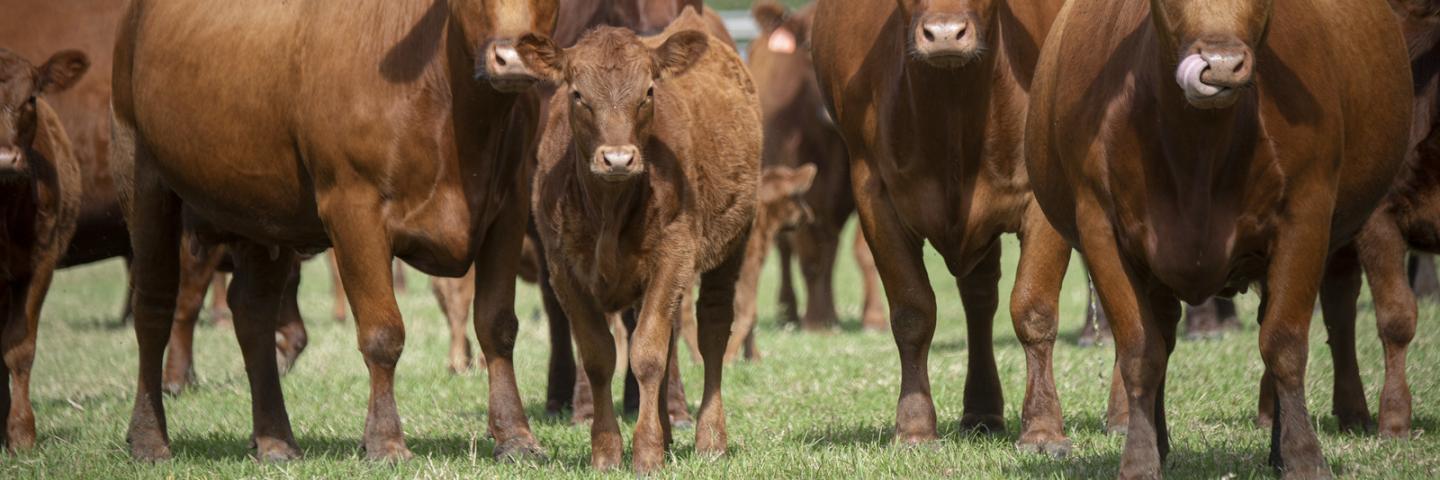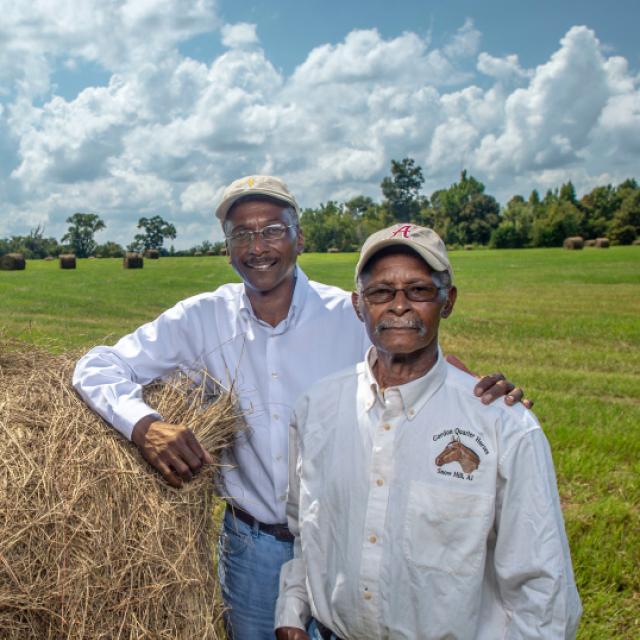Notice


The Regional Conservation Partnership Program (RCPP) is a partner-driven approach to conservation that funds solutions to natural resource challenges on agricultural land.
The Meadowlark Initiative

Lead Partner: North Dakota Game and Fish Department
Lead Partner Contact: Kevin Kading, 701-527-1081
Project Type: Classic
Lead State: ND
Total Funding: $10,000,000.00
The Meadowlark Initiative is a statewide strategy focused on two goals in North Dakota: 1) improve, increase and connect wildlife habitat, and 2) support the sustainability of new and existing livestock ranches. Fourteen project partners have agreed to pool contributions to leverage RCPP funding using an innovative spatial modeling approach to prioritize land management and rental conservation activities. The partners aim to convert 20,000 acres of marginal cropland to diverse native perennial vegetation; enhance 50,000 acres of existing and reconstructed native grasslands; and restore and enhance 10,000 acres of wetlands within reconstructed grassland complexes.
North Dakota and Minnesota Supply Chain Soil Health Partnership

Lead Partner: Red River Basin Commission
Lead Partner Contact: Cassie Setter, 701-356-3183
Project Type: Alternative Funding Arrangements (AFA)
Lead State: ND
Total Funding: $10,000,000.00
The North Dakota/Minnesota Supply Chain Soil Health Partnership project will work with producers to increase adoption of climate-smart and soil health practices and systems in the northern Great Plains. Adoption of climate-smart ag/soil health practices, particularly no-till and cover crops, has generally lagged in the northern Great Plains when compared to other growing regions such as the Southeast and Midwest. The short growing season in the northern Great Plains can complicate adoption of cover crops. The partnership in this project recognizes the importance of including Historically Underserved producers in the project and intends to work with CCA’s to ensure that outreach and education is carried out to their client producers who qualify as HU. As part of its ongoing programming, the Trusted Advisor Partnership will continue engagement with Tribes to explore how Tribal producers and communities could benefit from these activities.
Upper Sheyenne River Watershed Pilot Project

Lead Partner: Barr Engineering Co.
Lead Partner Contact: Mandar Nangre, 701-255-5474
Project Type: Classic
Lead State: ND
Total Funding: $1,600,000.00
The Upper Sheyenne River Watershed Pilot Project is a collaborative effort between NRCS and partners to implement best management practices that address priority resource concerns for the Sheyenne River, including the land improvement and restoration component of RCPP conservation activities. Project objectives focus on channel stability improvements including changes to riparian vegetation, changes to grazing practices, improving fish passage, targeted bank stabilization measures, reduction in nutrient loading, and overall benefits to water quality.
Audubon Conservation Ranching Initiative

Lead Partner: National Audubon Society
Lead partner Contact: Thomas Schroder, 512-663-2944
Project Type: AFA
Lead State: ND
Total Funding: $455,000.00
The National Audubon Society will build on a successful NRCS Conservation Innovation Grants project, expanding Audubon’s Conservation Ranching (ACR) Initiative, which works with private landowners to enhance ecological, economic and social outcomes with ranch management practices. ACR currently has 50 certified ranches spanning 1.7 million acres, and the project will enable expansion into AZ, IA, MN and UT, with a goal of enrolling an additional 100 ranches across 2.3 million acres. Performance-based payments will be provided to participating ACR ranches for practices and program activities including installation of prescribed grazing infrastructure, third-party certification audits and soil monitoring.
Scaling Soil Health in the Prairie Pothole Region

Lead Partner: Ducks Unlimited, Inc
Lead Partner Contact: Sam Krohn, 701-934-1635
Project Type: AFA
Lead State: SD
Total Funding: $6,112,918.10
Ducks Unlimited proposes to harness a large partnership to implement agricultural practices that improve soil health for agricultural production, wildlife and society, and improve the management of water in a landscape prone to both flooding and drought. Targeted practices include the planting of perennial grasses, reduced tillage, integration of cover crops, expansion of livestock grazing, and provision of mentorship opportunities to farmers and ranchers. The outcomes data collection approach, developed by project partners, will measure conservation, economic and social outcomes on an anticipated 30,000 acres.
Natural Resources Conservation Service (NRCS), Financial Assistance and Stewardship Farm Bill Programs operate under a continuous sign-up; therefore, applications are accepted on a continuing basis throughout the year and cutoff dates are scheduled to allow for ranking, prioritizing, and selection of applications for funding.
Archived RCPP 2023
Archived RCPP 2022
Program Contact:
Patrick Rohloff
Natural Resources Specialist (RCPP Coordinator)
(701) 683-5832
patrick.rohloff@usda.gov
Ready to get started?
Contact your local service center to start your application.
How to Get Assistance
Do you farm or ranch and want to make improvements to the land that you own or lease?
Natural Resources Conservation Service offers technical and financial assistance to help farmers, ranchers and forest landowners.

To get started with NRCS, we recommend you stop by your local NRCS field office. We’ll discuss your vision for your land.
NRCS provides landowners with free technical assistance, or advice, for their land. Common technical assistance includes: resource assessment, practice design and resource monitoring. Your conservation planner will help you determine if financial assistance is right for you.
We’ll walk you through the application process. To get started on applying for financial assistance, we’ll work with you:
- To fill out an AD 1026, which ensures a conservation plan is in place before lands with highly erodible soils are farmed. It also ensures that identified wetland areas are protected.
- To meet other eligibility certifications.
Once complete, we’ll work with you on the application, or CPA 1200.
Applications for most programs are accepted on a continuous basis, but they’re considered for funding in different ranking periods. Be sure to ask your local NRCS district conservationist about the deadline for the ranking period to ensure you turn in your application in time.
As part of the application process, we’ll check to see if you are eligible. To do this, you’ll need to bring:
- An official tax ID (Social Security number or an employer ID)
- A property deed or lease agreement to show you have control of the property; and
- A farm number.
If you don’t have a farm number, you can get one from USDA’s Farm Service Agency. Typically, the local FSA office is located in the same building as the local NRCS office. You only need a farm number if you’re interested in financial assistance.
NRCS will take a look at the applications and rank them according to local resource concerns, the amount of conservation benefits the work will provide and the needs of applicants. View Application Ranking Dates by State.
If you’re selected, you can choose whether to sign the contract for the work to be done.
Once you sign the contract, you’ll be provided standards and specifications for completing the practice or practices, and then you will have a specified amount of time to implement. Once the work is implemented and inspected, you’ll be paid the rate of compensation for the work if it meets NRCS standards and specifications.

